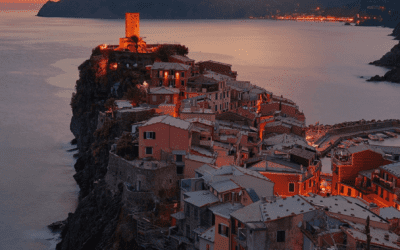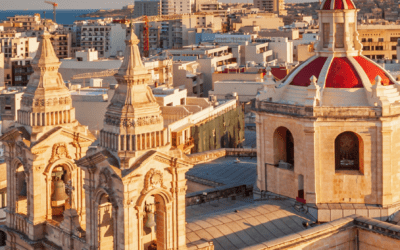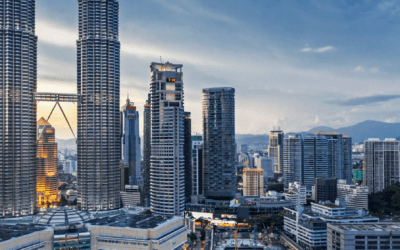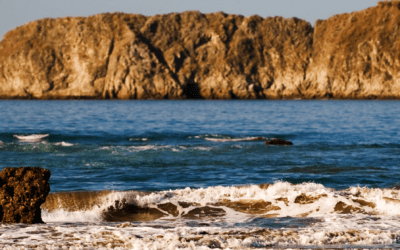Latin America is one of the most accessible regions in the world to get residence and, in many cases, second citizenship.
There are numerous options in Spanish-speaking countries where you can easily go and take a small income and get set up with a second residence. There are some caveats to many of those programs, and Ecuador is no different.
Of all the Latin American countries where you can achieve second residency relatively easily, Ecuador stands out for the minimal investment required.
It’s one of the cheaper options to access an affordable property market and a low cost of living. It’s not going to suit everyone because to gain permanent residency and then citizenship, it has pretty stringent physical presence rules.
Depending on your needs, however, there are legal ways around those restrictions and incentives that allow you to pay little to no tax there.
Benefits of Ecuador as a Country
Ecuador is a country that will suit those who want a relatively simple, laid-back, nature-oriented lifestyle. It’s not the most developed country in Latin America, nor the most economically successful, but the cost of living there is just about the lowest in the region. According to livingcosts.org, the cost of living in Ecuador is 68% less than in the US.
That’s not to say it’s a poor country with the vast disparities of wealth you find elsewhere. In many ways, it’s a stable, mid-income country with an established middle class and a growing expat population.
Ecuador is known as the land of the eternal spring. Its altitude and location to the equator create a subtropical climate that is neither too cold nor too warm. There’s lots to see and do, from the big cities of Quito and Guayaquil to stunning beaches, volcanos, the Amazon jungle, Andean highlands, and the Galapagos Islands.
It’s a nature lover’s paradise where you can relax and enjoy the weather and the food, which tends to be flavorful rather than spicy. Other highlights include high-quality wines, like Malbec, Pinot Noir, and Torrontes, and some of the best chocolate you can find anywhere, made from its famous Arriba cocoa beans.
So good, so far, but here’s the thing – buying real estate and land in Ecuador will cost you a fraction of the price it does in other countries. Property there is still underpriced for South America and downright cheap compared to Europe and North America.
If the low cost of living and some of the cheapest land in South America, including productive land, is appealing, consider residency.
Ways To Get Residence in Ecuador
As an alternative residency, Ecuador is an interesting option. You can spend four years there, with a relatively tough physical presence requirement, or put US$45,000 into a real estate investment. Quite frankly, that is a pretty low cost to pay for a residence.
The process starts with a temporary residence, which is good for two years. There’s no physical presence requirement if you want to remain a temporary resident and not upgrade to permanent status. The downside is that you need a path to citizenship by staying a temporary resident.
If you choose to go for permanent residence, you can leave Ecuador for up to ninety days a year in the first two years. Once you get permanent residence, you still have to be there for at least 185 days per year for the first two years.
There are five ways to get residence:
- Bank Deposit – Invest money in the Central Bank account – at least $45,000, plus $500 for each dependent.
- Real Estate – You can invest $45,000 in a house, apartment, office, land, and other real estate.
- Company Investment – Invest $25,000 in shares in an Ecuador company or invest $45,000 in your own business
- Retirement – Have income for the remainder of your life of at least $1,350 monthly.
- Rentista – Proof of legal income of US$1,350 per month through dividends, interests, or rents.
So, as a permanent resident, in the initial few years, you can still travel outside of Ecuador for up to 180 days each year. In year three, you can spend up to two years outside of Ecuador and still keep your residence permit active.
If you buy a property, you can go about once a year and keep things ticking over. This is a country that welcomes people and investment. You can expect some bureaucracy, but the process will generally be pretty straightforward. Keeping your residence will not lead to citizenship, but for many, that will work.
In short, Ecuador is a good option for people looking for cheap real estate investments and a second residence with the freedom to roam.
Citizenship of Ecuador
If the goal is citizenship, you have to consider physical presence. This is for people who want to live there full-time and are okay with spending the best part of four years in one place.
As mentioned, you must be a permanent resident for three years to apply. You’ll also have some minimal command of Spanish and pass a history exam. As in Latin American countries, you must prove you can support yourself. Our contact on the ground recommends showing at least $1,250 of monthly income. Citizenship is also possible through marriage.
Pay Low Taxes in Ecuador
The best decision of Ecuador’s tax system is that it’s a little weird – being neither fully territorial nor worldwide, but an odd combination of both. Yes, you can still achieve low taxes, but doing so requires some navigation.
Put simply, if you’re not taxed elsewhere, then Ecuador will tax you. With that said, if you have income from overseas that is taxed overseas at a rate of at least 14%, it will not be taxed in Ecuador. So, you can use a tax credit in Ecuador and not pay anything there.
For the income you earn there, you’ll pay a personal tax of up to 35%, corporate tax of 25%, and 10% on capital gains.
But there’s a kicker. If you have an offshore company, you can structure it so the income is received in your own name, and the first $12,000 is exempt from tax each year.
As we know, that $12,000 will go a long way in Ecuador. If you can manage on that, you pay nothing to Ecuador. And if that’s not enough, you can remit funds into the country and pay progressive tax rates on the amount you need, which are low compared to other places.
It’s a higher-tax country, but you can structure your affairs to benefit from a cheap residence, lower tax, and a quality, affordable lifestyle.
The Real Estate Market in Ecuador
The capital, Quito, has good livability and is the ideal location for expats who want a big city. Health care is affordable, with plenty of English-speaking doctors – so good that tens of thousands of medical tourists head there for cosmetic, dental, orthopedic, and other minor surgeries.
You can also find international schools, such as The British School of Quito, Lycee La Condamine, and Colegio Americano de Quito, which makes it ideal for expat families. The city has parks and plenty of green spaces, such as The Parque Carolina, which has walking and jogging trails, sporting areas, botanical gardens, and a vivarium.
The Mariscal Sucre International Airport is just 45 45-minute drive from the city. Areas such as La Foresta, La Mariscal, and Gonzalez-Suarez, known for their restaurants, bars, and shopping, combine a secure residential feel with plenty to do at night.
Rental yields in Quito range from 4.7% to 7.7%. A three-bedroom apartment costs $500-$800 per month; if buying there, the average price per square meter is around $900 and $1,300.
Cuenca, a city in southern Ecuador’s Andes mountains, is off the beaten track but has one of the largest expat communities in Ecuador. The town offers healthy living, clean mountain air, and many stores and markets with fresh local products. It’s slightly cheaper than Quito to buy property.
If you’re looking for beach life, Puerto de Manta on the Pacific coast is ideal. Rental prices are slightly higher than in Quito, but restaurants and grocery stores are more affordable.
In South Ecuador, areas such as Loja, Zumba, Vilcabamba, Quinara, and Yangana are interesting, especially if you are buying land. These places have plenty of land for sale that can qualify the buyer for a residence permit, as long as you’re willing to invest a minimum of $45,000.
After buying land, you can build pretty much whatever you like on it; there are no restrictions; you just have to get a permit. You don’t have to be present during construction.
The Benefits of Second Residence
Having a second residence permit is a great strategy to ensure you are always ready, no matter how much things change at home.
Whether you want to move overseas or enjoy a tax-friendly, lifestyle-friendly place, having a second residence in your back pocket makes a lot of sense.
If you are from a place like Canada or America and are more comfortable with the Americas, then you’re at an advantage because Latin America has some of the most open places in the world.
They are more concerned about you proving you can support yourself, whereas places like Asia are more about proving you have wealth. In terms of immigration in Latin America, if you’re from a high-tax country that they’re familiar with, they will not bother you as much. You can’t escape bureaucracy, but gaining residence is straightforward rather than easy.
With one of the lowest living costs in the region, Ecuador has become one of the top destinations for foreign retirees. Low cost means more money to invest and more money to enjoy.
Conclusion
From a tax perspective, Ecuador is less of an advantage if you want the freedom to move between countries, go where you are treated best, and pay less tax. If you are paying taxes elsewhere, they will leave you alone, but if you’re living the Nomad Capitalist lifestyle, it may not be as good. There are other places with less physical presence needed and better tax incentives.
But Ecuador ticks many boxes for anyone looking for a hassle-free, low-cost backup residence or someone keen on living there. It’s all about reducing your taxes while living your desired lifestyle by getting out from under your own country’s tax system.
At Nomad Capitalist, we call it our tax-friendly quadrant to legally reduce your tax bills, diversify and protect your assets, become a global citizen, and maximize your freedom. We have helped 1,500+ HNWI clients, and we can help you, too. Find out how here.









